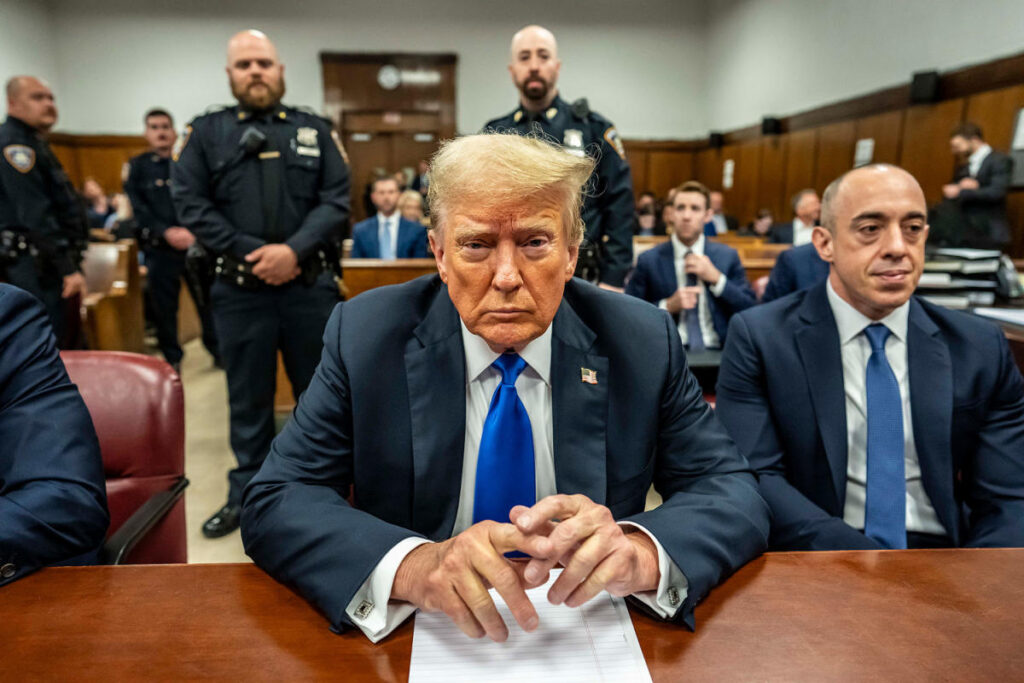Prosecutors from the Manhattan district attorney’s office have made a case against dismissing former President Donald Trump’s criminal conviction related to a hush money scandal. In a recent filing, they proposed ways to move forward that would not disrupt his presidential responsibilities. One notable suggestion was assuring Trump that he would not face jail time following his conviction, which might ease his anxieties while serving in office. They argued that dismissing the case or vacating the verdict is unnecessary given the substantial evidence establishing his guilt and the critical importance of maintaining public confidence in the judicial process. The prosecutors emphasized that factors weighing against dismissal amply exceed any arguments for Trump’s immunity claims.
Trump’s legal team contends that he should be protected by presidential immunity due to his status as president-elect, suggesting that his current position is comparable to that of an incumbent president. They argue that this protection should warrant the dismissal of the criminal charges against him. However, prosecutors rebutted this statement, clarifying that “presidential immunity” does not apply to the current circumstances. The filing noted that no legal principles exist that would bar proceedings before Trump’s inauguration or prevent the deferral of sentencing until after his presidency. They maintained that the integrity of the legal process must be preserved, irrespective of Trump’s impending inauguration.
The district attorney’s office highlighted that Trump has previously sought a postponement of his sentencing and that this delay should not be considered a source of grievance. They argued for temporary accommodations that would ensure Trump’s presidential duties are upheld while allowing the judicial process to remain intact. The prosecutors suggested multiple pathways to balance Trump’s responsibilities with the judicial proceedings, such as postponing sentencing until the end of his presidential term. They stressed that such accommodations would respect both Trump’s role and the crucial principles of law enforcement without dismissing the indictment or impeding the completed components of the criminal case.
Additionally, the filing included a recommendation to limit Trump’s potential prison sentence. It was noted that given his lack of prior convictions and the nature of the charges, the court is under no obligation to impose imprisonment, which could further mitigate Trump’s concerns regarding his presidency and allow for a degree of leniency in sentencing. The idea is that by considering lower sentences, the judicial system would not interfere significantly with Trump’s capacity to lead while still upholding the rule of law and the decision already reached by the jury.
Moreover, prosecutors introduced an unconventional legal principle called “abatement,” which is utilized in some states, including Alabama. They described how this mechanism allows for a situation where a defendant dies after being found guilty but prior to final judgment during the appeals process. The DA’s office suggested that this process could apply to Trump’s case, presenting an option that neither vacates the conviction nor dismisses the indictment entirely. This method reflects a legal approach that seeks to balance the concerns regarding judgment’s finality while respecting the substantive outcomes of the criminal proceedings.
As the courtroom debates continue, Trump’s legal team has drawn parallels between their case and the recent actions of special counsel Jack Smith, who dismissed his own federal cases against Trump following his electoral success. However, prosecutors pointed out key distinctions between the cases, emphasizing that Smith’s matters were not yet adjudicated in trial. Trump’s spokesperson has publicly criticized the prosecution, claiming it infringes on Trump’s rights and hinders his ability to carry out the duties of the presidency. The resolution of motions regarding the dismissal of Trump’s case remains pending, with the judge’s decision yet to come.

